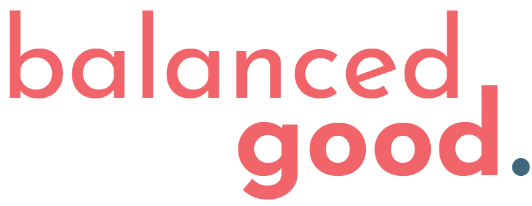Have you ever found yourself listening to a podcast or reading a book wanting to shout “YES” because everything that is being said resonates with you?
That happened to me a few months ago when I first heard Chi Nguyen (she/her) speak with Cindy Wagman on the Small Nonprofit Podcast. I remember the night vividly, I was walking with my little girl Lauren in her carrier on my back and Chi was speaking about involving her sons in her passion for philanthropy, all the critical things that need to happen towards a feminist COVID recovery, and the difference between a woman leader and a feminist leader. I shouted “yes” out loud and was nodding regularly, I also received some strange looks from neighbours.
 Chi is a passionate woman, with a strong background in community organizing. She is a social impact consultant and the Ontario Liberal Candidate for Spadina Fort-York. She is also an active volunteer with the Gender Alliance and the Responsible Leaders Network (BMW Foundation). When I had the chance to connect with Chi she shared her passion for feminist leadership, community growth, inspiring her young sons (Ellis 6 and Sam 3) in community building, and shared some learnings with me as a member of the BIPOC community.
Chi is a passionate woman, with a strong background in community organizing. She is a social impact consultant and the Ontario Liberal Candidate for Spadina Fort-York. She is also an active volunteer with the Gender Alliance and the Responsible Leaders Network (BMW Foundation). When I had the chance to connect with Chi she shared her passion for feminist leadership, community growth, inspiring her young sons (Ellis 6 and Sam 3) in community building, and shared some learnings with me as a member of the BIPOC community.
Grab a coffee and take a minute to read more about Chi, her vision for our sector and beyond, and how she balances it all.
1. Briefly tell me about a day in the life of Chi Nguyen.
During the week, the kids are up around 7am, and the mornings are a race to daycare drop for the 3-year-old. I settle into my desk (sometimes with Ellis, my 6-year-old, at home managing virtual school!) around 9:30am.
As I am currently part-time with an amazing team, I spend time connecting into that work (we’ve been doing Covid-related response featuring community solutions/engagement). I juggle that paid work with my current campaign to connect with voters in Spadina Fort-York. I try and safeguard my late afternoons: computer is shut down at 4:00 p.m. and stays off until 8:30 p.m., and then 2-3 nights a week, I’m back online.
With the warm weather, I’m able to sneak in some pre-daycare pick-up runs. I’m a long-time (slow) runner and need that time to reconnect to my heart and body.
2. As I mentioned earlier, when I first heard you speaking with Cindy Wagman on the Small Non-Profit Podcast I was on a walk with my sweet little 8-month-old and found myself nodding and saying “yes” out loud. I’m sure my neighbours, and daughter, was wondering what me had so fired up. Can you explain, in simple terms, what you would consider feminist leadership?
To me, feminist leadership is about seeing leadership everywhere: it is not about title, it’s about getting the work done. It’s about unlocking collective potential, and seeing that we’re not there yet, and we’re constantly learning to do this better and more effectively.
Feminist leadership is also about putting people and purpose at the centre of the mission, rooted in community values (in contrast to the masculinity linked to the more traditional business/corporate model). I also think it’s about leading with maturity and compassion focusing on evidence-based best practices and collaboration.
3. When we spoke, you shared with me that you had a very clear example of what a strong, feminist leader was even at the very start of your community-based work. How has this shaped you as a professional?
My very first feminist leader was my mother. From as early as I can remember my mother worked in childcare and community centres. She is the reasons for my love of community centres. These centres create a village and unlock mobility while connecting adults.
I’ve also been very fortunate to have two strong women leaders in my political career – perhaps they would not consider themselves feminist leaders, but the encompassed all of those skills I outlined above. Most importantly, they taught me how to create space for and elevate other women.
4. I love this quote that you shared in the podcast “When I think about inclusive leadership and feminist leadership, it’s about bringing that whole person and all of the weight of that into decision making, into how we run our organizations with lots of forgiveness and resiliency, and frankly, real humanity.”, why is this so important now, in light of COVID and as we look to a post-COVID recovery?
Well, I keep thinking about the 1920s and what was offered up in terms of real cultural and systemic transformation. We are embarking on the same kind of radical shifts, and we are learning right now the real costs of ignoring those most deeply impacted. We are going to ignore our own humanity, and that includes a respect for how we are in relation to each other, to those who are unlike us, to the environment unless we actively change this. And, this means that we need to pay attention to all of it.
Post-Covid reality is our moment to embed deep empathy into systems that have missed out on that humanity. This is a moment where we can have permission to boldly reimagine our systems to focus on care, on investing for this new future.
So many of us need to heal from this intense time, especially women, and we need to have tough and honest conversations on how to do this. No one knows exactly what the playbook for this look like,
I would also like to add that we do not have a playbook for dealing with the now unignorable evidence of cultural genocide that our Indigenous community members have told us about for decades. We do know that we each have a role to play. So, it does not matter from where you sit, you need to accept the invitation to understand your role and the systems of harm we live in and commit to trying to learning how you can change things.
There is no doubt this is a trying time for our country and our sector, and now is the time to rise and make change for a better, stronger, and more inclusive future.
5. You also talked about how you have included your children, young boys, in your work when possible – which I love, and strive to do regularly as well. As you mentioned, our children, the next generation, are why we are doing our work. Can you expand on this a bit more?
Well, prior to having started a family, in my community work, I had seen the value of centering and including children in our policy and programming work. This comes out of lots of the youth-led programming that was a hugely influencing force in my early life. But, as I bridged that work to policy efforts, and saw that too often, policymakers are removed from this, I have actively made my kids a focus on the community change that I want to invest in.
6. After we spoke our conversation sat with me for quite some time. You shared a lot of details with me about your experience as a BIPOC individual, how this intersects with feminism and feminist leadership, and the critical conversation we need to have in the social profit sector. To be honest, it was (and still is) a lot to unpack and no one conversation will touch on everything that needs to be said. In our conversation I shared with you that I have been struggling with the discomfort of wrestling power, and not knowing what to say or do, and how to do it.
Can you give insight as to a first step I (and others) can take to amplify and support our BIPOC peers?
- Ask questions (every question should be welcome).
- Amplify voices.
- Say something and intervene, do the uncomfortable, call people out and educate.
- Create a circle of learning/mentorship (surround yourself with people who have difference experience/knowledge).
- Board members and organization’s leadership must include setting BIPOC leaders up for success, provide an open invitation for culture change, and eradicate exceptionalism for leaders of colour.
7. In your opinion, what are the top 3 things our sector needs to do to help empower feminist leadership? (Does this have any intersection or overlap with how we can also empower BIPOC-led leadership)?
- We need to tackle white supremacy/entitlement/saviourism in our sector.
- We need to make space for developing and entrusting more BIPOC-leadership.
- And, we need to do our homework. Every organization needs to audit and understand the good and the harmful practices they contribute to this means reviewing processes, participation, and leadership. This also means reviewing pay/compensation (being transparent about money) and reviewing and creating flexible work conditions. We also need to understand who holds entry, junior roles, and who holds power with our organizations.
8. How do these 3 things helps empower working mothers?
When our systems remove harmful practices, and centre women’s contributions then we are supporting all of our teams/staff/employees.
9. What is currently on your reading list?
- My Grandma’s Hands, Resmaa Menakem
- The Value of Everything, Mariana Muzzacatto
- At The End of the Day newsletter, Hannah Sung
10. And lastly, when you manage to find a few moments for yourself, what is your go to self-care activity?
Running, and kitchen dance parties!
My conversation with Chi did not disappoint, I hope you also took away a lot from this conversation. If you want to connect with Chi, I encourage you to email her or follow her on Twitter.
It’s people like Chi, and all of you who are reading this, that are going to lead the action and change that needs to happen in our sector.
I’m looking forward to continuing to highlight voices and perspectives in our sector – please reach out to me if you would like to share.
Thanks for reading and stay tuned for more conversations.



